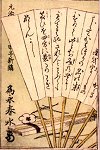
|
|
|
|
|
 |
 |
 |
 |
 |
 |
|
|
|
War with China The war between China and Japan had its beginnings in Korea. China claimed suzerainty over the peninsula, but Japan enjoyed favorable trade relations with Korea and resented China's growing influence. A revolt in Korea, followed by the movement of Chinese troops going to the aid of the Korean king, provided Japan with a sought-after opportunity to intervene and to demand that China evacuate the peninsula. In July 1894, the Japanese began the war by sinking a Chinese troopship, and during the next nine months proceeded to force the Chinese army out of Korea. The victorious and well-organized Japanese then proceeded to take the Liaotung Peninsula and to capture the North China harbor of Port Arthur during the following eight months. The war was over in less than a year. In April 1895, China ceded Formosa, the Pescadores Islands, Port Arthur and the Liaotung Peninsula at the southern tip of Manchuria and recognized the complete independence of Korea. But Japan was not to be allowed the fruits of victory. The powerful western countries of France, Russia and Germany exerted immediate pressure, forcing her to give up the Liaotung Peninsula as well as the harbor and fortress of Port Arthur. Left without a choice, for Japan was in no position to oppose these powers, the Meiji Emperor accepted the demands on behalf of the embittered country. There was much righteous anger during the ensuing years directed against these western nations, for each of them seized, leased or annexed Chinese territories to themselves. France moved into Kwangchow in South China; the Germans took control of Tsingtao and Kiaochow; while Russia occupied Port Arthur and the Liaotung Peninsula. This Russian move was to become one of the causes of the Russo-Japanese War.
|
